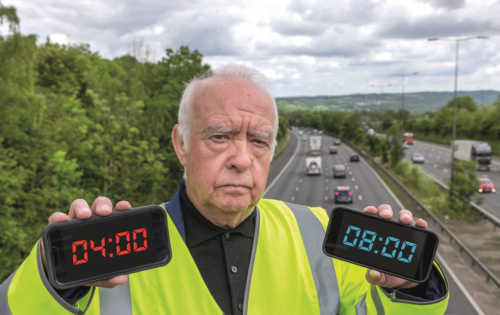
Road safety training organisation Driver First Assist has launched its Skills for Safer Journeys online training course which it believes could dramatically improve safety for the millions of employees who regularly drive for work, including coach and bus drivers. With more deaths occurring from at-work road travel than in the workplace itself, the company believes its new initiative will give all drivers crucial skills to support at the scene of an on-road incident, regardless of the type of vehicle they drive.
The new 90-minute online course – which can be completed in stages – teaches how to make critical decisions using the principals of dynamic risk assessment, safely park at the scene of an incident, gather crucial information for the emergency services, make the perfect 999 call, and provide first-aid assistance prior to the arrival of paramedics.
Driver First Assist CEO David Higginbottom said: “Last year there were 1,633 fatalities from road collisions in Great Britain – the equivalent of more than three ‘superjumbos’ falling out of the sky. In too many cases, the victims didn’t die because of the collision; they died as the first people on scene didn’t know what to do.
“We want to help employers meet their health and safety obligations by giving drivers the skills they need to be safer on the road. Health and safety law does not end at the gate to the bus depot; when someone drives for work the roads become an extension of the workplace, even if they are driving a personal vehicle for business purposes.
“Drivers injured or falling ill on the road should not experience worse outcomes than their non-mobile counterparts. Our vision is to turn hundreds of thousands of drivers on UK roads into qualified first responders.”
Supporting the launch, Sir Keith Porter, Emeritus Professor of Traumatology at Queen Elizabeth Hospital Birmingham, explained: “We know many patients die at the scene of road traffic collisions because of a failure to open an airway, or to arrest external haemorrhage. The Driver First Assist course will empower drivers to deliver life-saving skills, helping to keep a patient alive in those valuable minutes before the ambulance arrives. This course also gives drivers the confidence to ensure they fully appreciate the importance of scene safety and good communication with the emergency services. The more first responders we have, the better.”
Driver First Assist points out that a World Health Organisation report on road traffic injury prevention found that within high-income countries, 50% of deaths from road traffic crashes occur within minutes of the incident occurring, and that those who are present or who arrive first at the scene of a crash can play an important role in contacting the emergency services, securing the scene to prevent further incidents, and applying first aid. It found many deaths from airway obstruction or external haemorrhage could have been avoided by lay bystanders trained in first aid.
The ‘Skills for Safer Journeys’ course is described by Driver First Assist as an affordable and effective solution for training drivers to assess road risks.
Partner and motoring and transport specialist at national law firm Stephensons Paul Loughlin commented: “Skills for Safer Journeys is an invaluable tool which enhances driver safety and contributes significantly to any fleet operations’ safety regime. It helps bridge the compliance gap so often found between the ‘on-road’ and ‘off-road’ workforce.”
Driver First Assist has been established for more than a decade, delivering face-to-face first aid training to more than 10,000 HGV drivers as part of Driver Certificate of Professional Competence (CPC) periodic training requirements, and since 2017 has also been responsible for training all National Highways Traffic Officers in lifesaving first aid.

